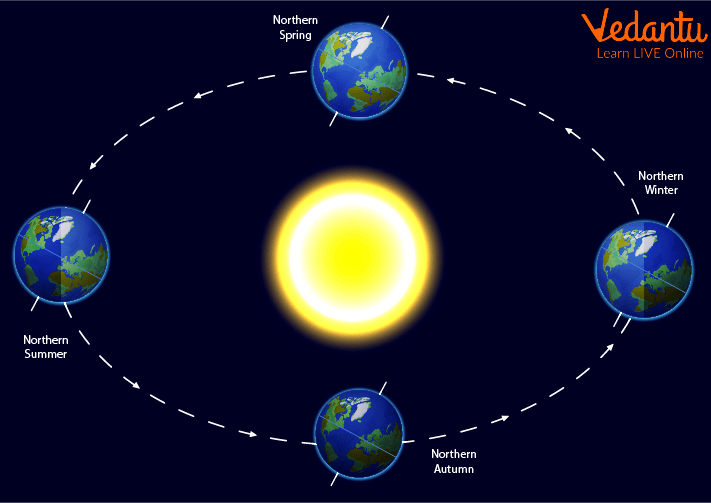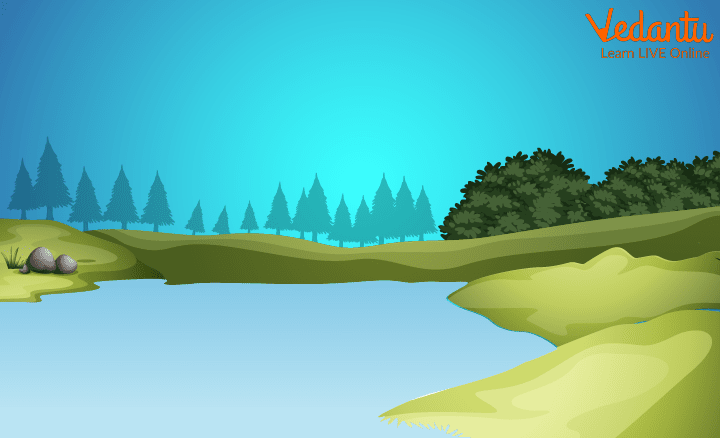




Why Is Earth Called the Only Home for Life?
Earth, our magnificent planet! What knowledge do you have of the planet we call home, though? With the help of our amazing Earth facts, let's find out. The fifth-largest planet in the Solar System, Earth is located third from the Sun. It is the only place where life is currently known to exist.

Earth
Only Earth has an English name that does not come from Greek or Roman mythology. Old English and Germanic languages are where the name of our planet originates. Our planet is known by many different names in various languages. Let us begin with some interesting facts about Earth.
Why is Earth Called a Unique Planet?
As we know, in our solar system, Earth is the third planet from the Sun. Its name is derived from Germanic and Old English terms that signify "the ground." Its name signifies the uniqueness of our planet because this is the only planet in the solar system that has water, soil, atmosphere, and life. There are a variety of living beings who live on this beautiful planet.
Important Facts About Earth
Our wonderful planet has existed for a very long period. Scientists have determined the age of the Earth to be about 4.5 billion years old by studying the rocks on our planet.
The Earth orbits the Sun, much as all other planets. And it does it rather quickly—about 30 kph, to be precise! The Earth completes one full orbit in 365 days (one year).
Some Interesting Facts About Earth
Have you ever questioned why the Earth has distinct seasons? This is the most interesting fact about our Earth. The answer is that the Earth's 'axis,' an imaginary line passing directly through the centre of the planet from North to the South Pole, is inclined 23.4 degrees. This indicates that various regions of the world are inclined to face the sun at various times of the year (or at different times during its orbit).

Rotation of the Earth
The Earth not only travels quickly through space, but it also rotates on its axis. The outcome? Daytime and nighttime exist! The side of the planet that faces the sun enjoys daylight, while the opposite side is in complete darkness.
Fun Facts About the Earth
Have you ever thought that if the Earth rotates then why don’t people on Earth rotate round and round? Earth is frequently pictured by people as a massive sphere. However, the shape of the planet is actually more akin to a squashed ball with a bulge at the equator, which is a hypothetical line drawn through the centre of the globe, precisely in the middle of the North Pole and the South Pole.
The Earth's spin and the impact of "gravity" are to blame for this "bulge." The invisible force of gravity pulls items in the same direction. This force keeps everything on Earth and prevents us from floating away towards space.
Atmosphere of the Earth
Earth's "atmosphere" is also essential for supporting life. The Earth is surrounded by a dense layer of gases, principally oxygen and nitrogen, which act as a barrier from the sun's powerful rays. Along with protecting us from meteorites, the atmosphere also maintains the Earth's temperature at a level that is conducive to life.

Atmosphere of the Earth
Summary
The Earth is the fifth largest planet in the Solar System based on its enormous 12,800-kilometre diameter (the measurement taken through the centre). Even bigger than Jupiter are Saturn, Uranus, and Neptune. Just Imagine! The only planet in our Solar System that is known to harbour life is Earth. This is because it has plenty of water and plenty of oxygen, both of which are essential for the survival of all living things. Due to its distance from the Sun, it is neither too hot nor too cold for life. We hope to have enlightened you with something new about our planet Earth, keep reading to enrich your knowledge and learn interesting facts.
FAQs on Fun Earth Facts for Kids: Explore Our Unique Planet
1. How is the atmosphere of Earth crucial for maintaining life?
The Earth is the only planet in our solar system where life is known to exist. This is due to the fact that it has an abundance of oxygen and water, both of which are necessary for the life of all living creatures. It is neither too hot nor too cold for life because of its separation from the sun.
The "atmosphere" of Earth is also crucial for maintaining life. The atmosphere is a thick layer of gases, primarily oxygen and nitrogen, that surrounds the Earth and shields it from the sun's strong rays. The atmosphere also keeps the Earth's temperature at a that is comfortable for life while shielding us from meteorites.
2. What is the nickname for Earth?
The nicknames Earth has received, such as the Blue Planet, Gaia, Terra, and "the globe," reflect its significance in the origin myths of every single human society that has ever lived. But the diversity of our globe is what truly stands out. Contrary to popular belief, Earth does not have a recognised international name. "Terra" is only a widespread misunderstanding of the planet's scientific name. Earth is the planet's commonly used name in English, including in science. Hence, Blue Planet, Gaia, Teera, and the Globe are the nicknames of our planet Earth.









